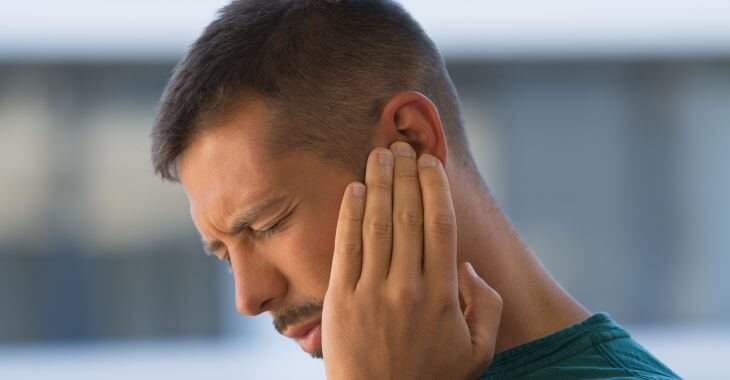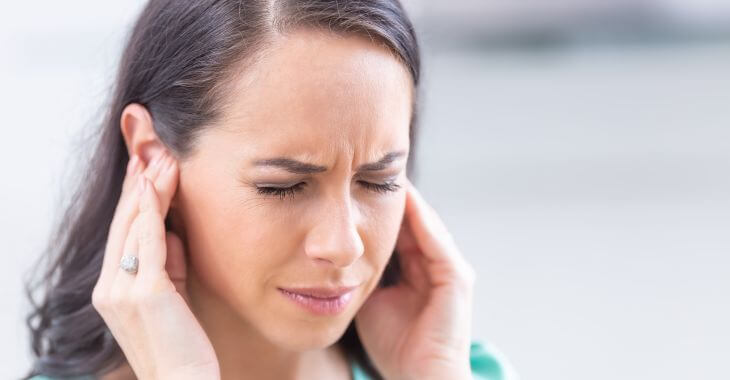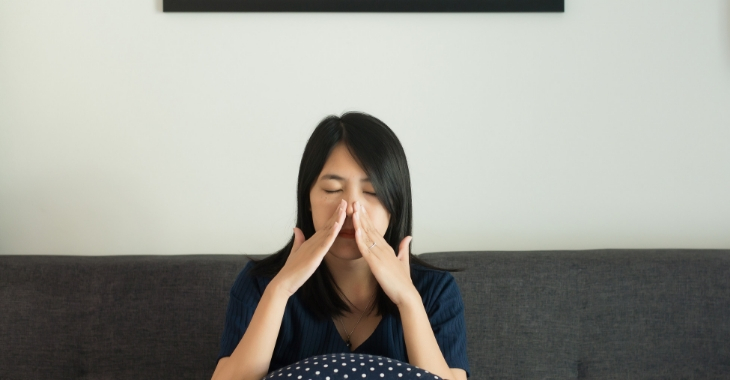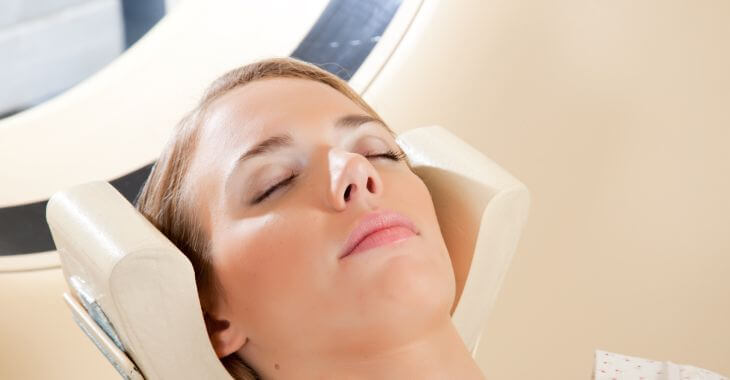Are Allergies, Ear Pressure and Earaches Related?

Most people equate respiratory allergies with watery eyes, sneezing and other eye/nose symptoms. However, anything connected to the upper respiratory system can be affected by certain allergies. If you have earaches or ear pressure, allergies may be to blame for your symptoms.
Ear pressure can be caused by many different conditions. Changes in altitude when traveling is a common cause of ear pressure, as can ear wax or a foreign object in the ear. However, the most common causes of ear pressure and pain are respiratory related like colds, sinus issues and nasal allergies.
Can Allergies Cause Ear Pressure and Pain?
While there are many kinds of allergies, nasal rhinitis is one of the more common varieties. Those with seasonal or year-round allergies that affect the eyes, nose and sinuses likely have nasal rhinitis. These allergies cause the body to create histamine, which results in inflammation and buildup of fluid.
The ears, nose and throat are all connected. When allergies cause excess fluid and inflammation in the nose and sinuses, it can affect the throat (post-nasal drip) and the ears. If you experience ear pressure, allergies could be creating fluid that is impacting the ears. Nasal rhinitis can affect the ears by:
- Creating a blockage in the eustachian tube, which connects to the nasal cavity
- Fluid from the nasal cavity can build up behind the ear drum
- Ears cannot drain properly
- Increased risk of ear infections
With more fluid and swelling in the nasal cavity and sinuses, there can be ear pressure and pain. This is a side effect of the allergies, but often, blockages and fluid in the ear can lead to an infection. Treatment for ear pressure and pain starts with controlling allergies and also clearing the ear canals.
Treatment for Allergies, Ear Pressure and Earaches
Since nasal rhinitis is the primary cause of ear pressure, treatment for allergies is the first step in getting relief. There are many different medications that can help reduce histamine production and the resulting fluid or inflammation. Your doctor can help you determine the right medication, which may include:
- Antihistamines
- Nasal decongestants
- Allergy shots
- Nasal corticosteroid sprays
Determining what allergens cause your allergy symptoms can also be helpful. If you can avoid the allergens, it can reduce your symptoms. Allergy testing through your doctor and treatment for your allergies can reduce your nasal, eye, throat and ear pressure symptoms.
How to Relieve Ear Pressure Caused by Allergies
Allergy medication is the first line of defense on how to relieve ear pressure caused by allergic rhinitis. However, you can try to relieve ear pressure and pain by “popping” your ear by yawning or swallowing. A warm compress on the ears may offer temporary relief while the medications are working on your nasal congestion.
Ear Complications from Allergies
When you have nasal allergies, ear pressure can be a symptom. However, if the ear canals are blocked from chronic allergies, there can be complications with the ears. Not only can you experience ear pressure and pain, but you may need medical care to address ear damage. Some of the possible ear complications include:
- Ear infections. People with allergies are more likely to develop an ear infection than those without. The fluid buildup can lead to bacteria or viral infections in the middle ear, causing pain, hearing reduction, sore throat, fever and other symptoms.
- Ruptured ear drum. Chronic ear pressure and infections can cause a ruptured ear drum. You may experience ear pain, hearing loss, tinnitus and vertigo. This can require treatment or surgery to prevent permanent hearing loss.
- Chronic otitis media. Ongoing ear infections from fluid caused by allergies can cause chronic otitis media, a returning middle ear infection. This can cause ear drum damage, hearing or damage to facial nerves.
While ear pressure and allergies may not seem like urgent medical conditions, if left untreated, they can cause more serious health issues. If you have ongoing ear pressure or pain, you should see an ear, nose
and throat (ENT) specialist to determine the best treatment for your allergies and linked ear conditions.
Treatment for chronic ear pressure may require surgery. If the fluid buildup cannot be resolved with medications, myringotomy or ear tube procedures may be required to drain the fluid in the middle ear.

When to Seek Medical Treatment
As you can see, not only can allergies cause ear pressure, but they can lead to serious ear problems. If you have ongoing allergies, finding the right treatment to control the fluid and inflammation can often resolve your ear pressure and pain. However, if you continue to have ear issues, you may need to see an ENT specialist.
Most allergies resolve quickly with home treatment and are manageable. If you have chronic nasal congestion or sinus problems that are causing ear pressure, it is time to seek professional medical attention from your primary care doctor or an ENT specialist.
The information provided on this website, including text, graphics, images, and other materials, is intended solely for informational purposes and should not be used as a substitute for professional medical advice, diagnosis, or treatment.




)